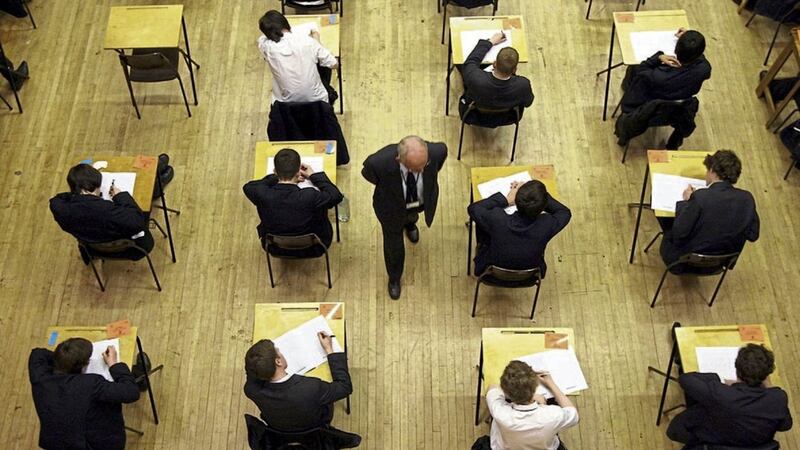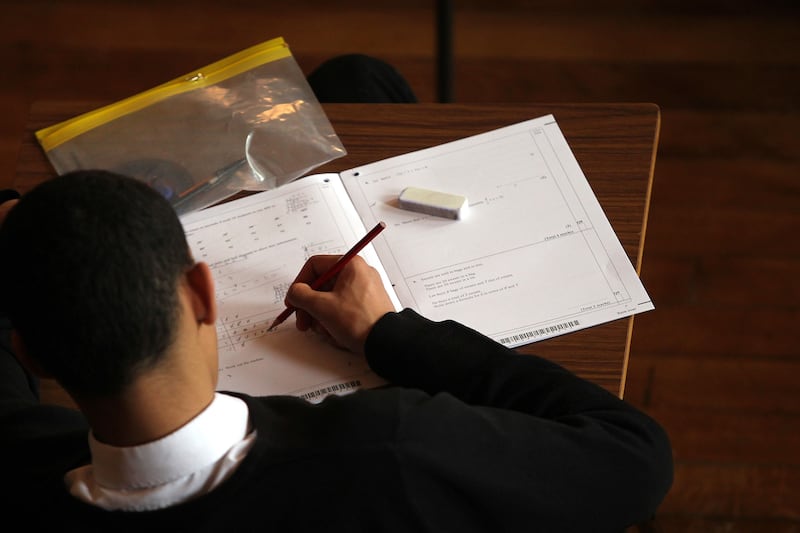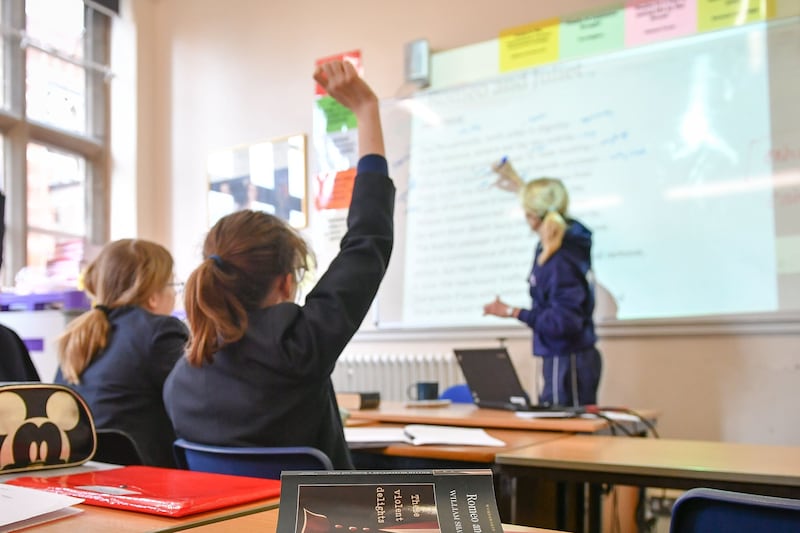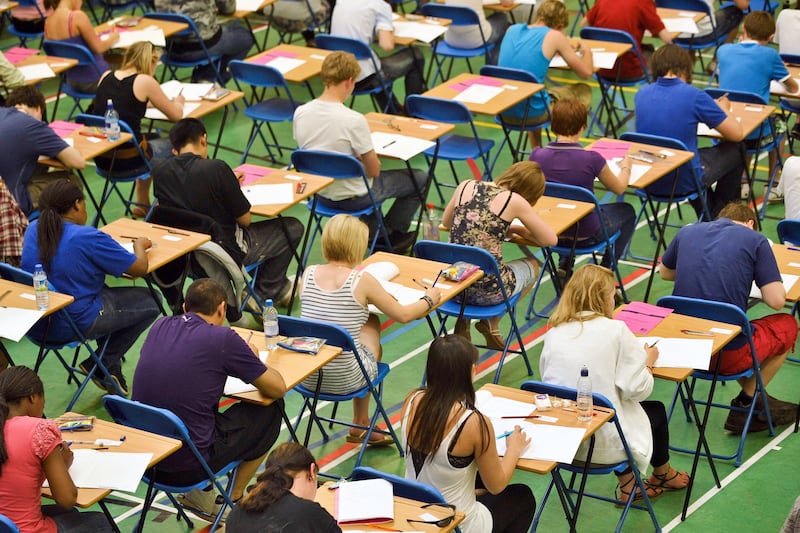GCSE results to be published this week will be based on predicted grades only, Education Minister Peter Weir has said.
The minister is scrapping an algorithm that would have adjusted teacher assessed scores by taking into account schools' past performances.
There were concerns that the original approach would have had a disproportionate effect on children attending non-grammar schools.
Pupils were unable to sit exams as normal this year because of the coronavirus pandemic.
There was uproar last week following the publication of A-level results when it emerged that thousands of final results were lower than teacher predictions.
Pupils, teachers, principals and politicians all demanded the algorithms used be abandoned.
The decision on GCSEs came just days before Thursday's issue of results.
All candidates taking papers awarded by the Council for the Curriculum, Examinations and Assessment (CCEA) will receive results based solely on the estimates provided by schools and colleges.
This will not involve any delay in the awarding process and all results will be published on Thursday as planned.
CCEA provides around 97 per cent of GCSE examinations in Northern Ireland.
Pupils who have taken GCSEs via other awarding bodies in England or Wales will be graded according to the approach taken by those organisations.
The model for determining final GCSE grades was different to the one used for A-levels.
While A-levels relied on assessments and AS-level grades, a school's results in the previous three years were to be used for GCSEs.
It is understood that the change to the grading system last year, with the introduction of the C*, complicated matters further.
Mr Weir said he took the decision after receiving advice from CCEA and listening to the concerns of school leaders, teachers, parents and young people.
"Standardisation is normally a key feature of awarding qualifications in Northern Ireland and across the UK. However, these are exceptional circumstances and in exceptional times truly difficult decisions are made. I am conscious that for GCSEs, unlike at A level, we do not have system level prior performance data for this group of young people," Mr Weir said.
"I want to encourage as many young people as possible to remain in education or training post-16 and to know they have another opportunity to engage with education. I am also mindful that unlike A-level, many GCSE pupils will not have access to previous public examination outcomes to inform any appeals process.
"I have, therefore, acted now in advance of the publication of GCSE results to ease anxieties, reassure young people and their families and ensure that every individual candidate receives a grade that recognises the work they have done."
Green Party NI Education spokesman and teacher Simon Lee welcomed the move.
"The badge on a uniform or the postcode of a school should have nothing to do with how exam results are allocated," he said.
Alliance Party MLA Chris Lyttle, chairman of the assembly education committee, said it was progress for GCSE pupils "and will bring some relief for those awaiting their results this Thursday".








